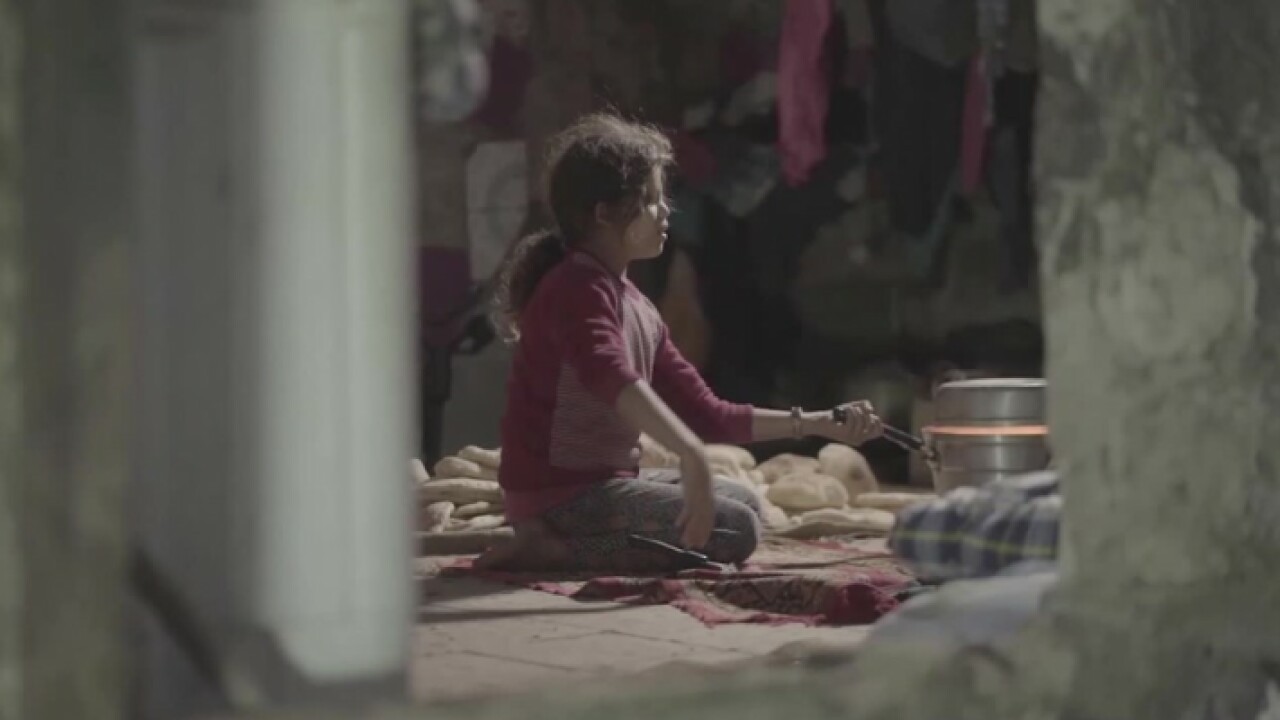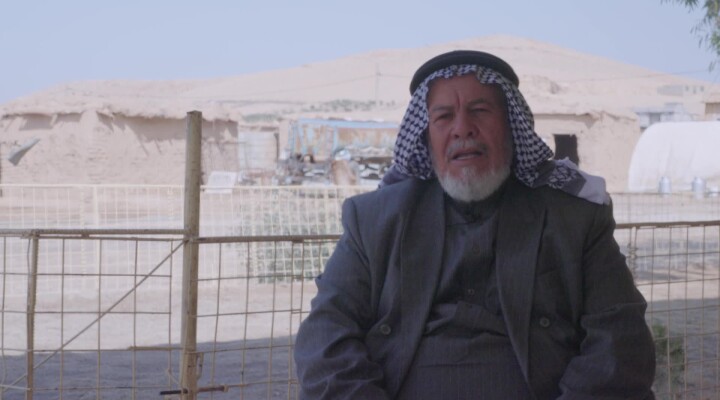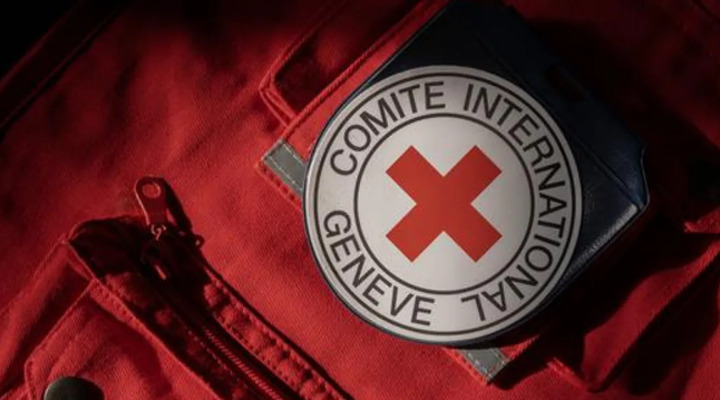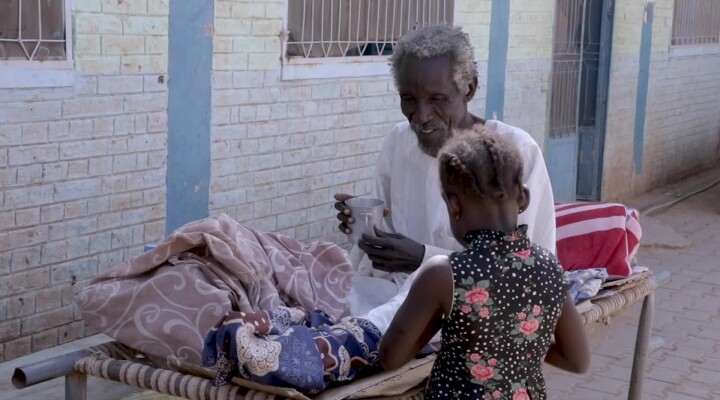Gaza: ICRC survey shows heavy toll of chronic power shortages on exhausted families

This is a modal window.
Gaza (ICRC) – A new study by the International Committee of the Red Cross in Gaza shows that 80% of Gaza’s population live much of their lives in the dark, with only 10-12 hours of electricity per day. This issue becomes extra problematic during the peak of summer and poses a threat to the health and daily life for Gazans, with the majority of the population being unable to refrigerate food and wastewater treatment plants unable to operate.
According to the study, the chronic, prolonged electricity shortages and power cuts are taking a psychological toll on people, with 94% of Gazans surveyed reporting that their mental health is affected by the situation. Furthermore, the recent intense escalation of hostilities in May damaged infrastructure and caused massive shortages of supply through the major power lines, leaving people with only 4-5 hours of electricity per day.
While some can afford additional electricity supply through generators at least 500,000 people cannot afford additional power, so they are forced to spend most of their day without electricity.
"We have a small battery to feed the LED lights and we recharge it only when we have electricity. It survives for an hour or two only, then we stay in pitch black. These LEDs go out most of the time," says Ahmed Darwish, a 64-year-old father from Bureij refugee camp.
Key findings:
· 94% of those surveyed said the prolonged situation had affected their mental health.
· 82% of respondents told the ICRC that they were unable to refrigerate food because of the situation.
· 27% of those surveyed told the ICRC they could not access any alternative form of power when the municipal power went off. Of these, 91% simply could not afford to pay for more power.
· 57% said that they could access alternative forms of power, but it was not enough to meet their needs in life or work.
In the ICRC survey, Gazans describe a situation where the unavailability of electricity has made daily life extremely difficult for years. It is almost impossible to do housework, devices frequently malfunction when power is out, there is no running water, schoolwork cannot be finished, people have to shoulder a massive financial burden to buy extra power (in the form of generators) and the power cuts even contributed to environmental pollution that impacts people’s health.
"It feels just like a cemetery when the power is out. Pitch black. I light up the oil lamp. Even the LED lights, they are insufficient because the batteries are not fully charged. I also don't always have oil for the lamp, and it is also insufficient for my kids to study on," says Mariam Hunaideq, a mother of six who lives in Nahr Al-Barid in the southern Gaza Strip.
The findings of the survey confirm long-standing testimony by people in Gaza and ICRC’s own observations. With electricity supply reduced to three to four hours a day during peak crisis times, people in Gaza experience heavy limitations to going about their daily business. Even when Gaza enjoys a period of calm and electricity supply reaches 10-12 hours a day, extreme heat and import restrictions of fuel to run the Gaza power plant pose a threat to health and daily life for Gazans.
The lack of electricity also means that wastewater treatment plants can no longer be operated, and wastewater is pumped into the sea untreated polluting large parts of Gaza’s shoreline. Not only does this pollute the sea, it contributes to the faster spreading of antibiotic-resistant bacteria, which endanger the health of people in Gaza and beyond.
“Electricity has become an issue in Gaza that profoundly impacts basic services like water supply, wastewater treatment, health facilities, as well as also businesses and irrigation of crops and fruit. Particularly in urban contexts like Gaza, people’s well-being and public health conditions strongly depend on electricity, even after the fighting has ended. In 2021, Gazans should not be living like this. We are calling on the authorities concerned and the international community to recognize the situation and work towards improving it”, says Mirjam Müller, the head of ICRC’s Sub delegation in Gaza.
The Gaza Resilience Programme
Electricity is not the only unreliable service in Gaza. There are also issues with the water supply and water treatment, health services and irrigation for local food production. All these systems are interconnected. When one fails, the others can too.
The ICRC launched its Gaza Resilience Programme in 2020, which aims to understand these systems and how they are interconnected and find ways to increase their resilience to system shocks, including improving water and wastewater systems and power supplies in a resilient way.
Note to Producers
1. The ICRC survey about Gazans’ needs and their response to electricity shortages was conducted from September to November 2020. In total, 357 people of both sexes (62 % male, 38 % female) over the age of 18 years, were interviewed in five governorates in the Gaza Strip. The survey and report can be found here
2. Established in 1863, the ICRC operates worldwide helping people affected by conflict and armed violence and promoting the laws that protect victims of war. A neutral, independent and impartial organization, its mandate stems essentially from the Geneva Conventions of 1949. it is based in Geneva, Switzerland, and works in more than 100 countries.
Full news release is available on www.icrc.org
For more information and to arrange interviews, please contact:
Suhair Zakkout (Gaza): szakkout@icrc.org or +972 599 255 381
Christoph Hanger (Tel Aviv/Jerusalem): changer@icrc.org or +972 526 019 150
Yahia Masswadeh (Jerusalem): ymasswadeh@icrc.org or +972 526 019 148
Imene Trabelsi (Beirut): itrabelsi@icrc.org or +961 3 13 83 53
SHOTLIST
On-screen credit ICRC
Duration: 07:18
Country/Location - Gaza City
Shooting date 01.05.2021
Language – Arabic
Producer - Hisham Mhanna/ICRC/Christoph Hanger/ICRC/Francisco Pavon ICRC
Copyright / Details of restriction if applicable – None
00:00:00 – 00:00:09
Power shutdown from a street in Gaza
00:00:10 – 00:00:17
A person in Gaza turning on a fuel power generator
00:00:17 – 00:00:26
Cars and people in the streets without electricity
00:00:27 – 00:00:44
Faces of children in front of a bonfire in a house without electricity
00:00:45 – 00:00:55
Interview with Salwa Al-Namir from Gaza
“The electricity supply is pre-paid. Most of the time I borrow money to pay for it. Sometimes we spend two or three weeks in a blackout”.
00:00:56 – 00:01:07
A mother with their children is trying to do homework before it gets dark in Gaza.
00:01:08 – 00:01:34
Interview with Mariam Hunaideq, Mother
“Power cuts are insufferable. It affects the internet connection. Following up with my kid’s lessons has become hard. It feels just like a cemetery when the power is out. Pitch black. I light up the oil lamp. Even the LED lights, they are insufficient because the batteries are not fully charged. I also don't always have oil for the lamp, and it is also insufficient for my kids to study on”.
00:01:35 – 00:01:49
A teacher from Gaza interacts with a mobile communication platform together with her students.
00:01:50 – 00:02:12
Interview with Majida Al-Hatou, Teacher
“I find difficult to teach due the lack of connectivity. I wait until I restore electricity and have internet access to resume my video classes. I rush to my computer when electricity is restored to connect with my students. This time is fully dedicated to my students”.
00:02:13 – 00:02:33
Majida Al-Hatou, a teacher in Gaza is trying to communicate with her students while the power is out.
00:02:35 – 00:02:38
A bonfire in one of the streets in Gaza
00:02:39 – 00:02:43
Images of Yousef Al-Sheikh, a kid from Gaza who got severely injured by burns when he was 10 months.
00:02:44 – 00:03:34
Interview with Yousef Al-Sheikh
“I am the same as they are. A child like any other child. What happened is not my fault! I love drawing and I like studying. I also like playing football with other kids in the neighborhood. Some of them fear me when I come near them. Others make jokes at me because of my looks. I have been bullied many times. I cannot study freely due to the lack of electricity supply. It affects everything, water supply, laundry, cooking. Other days, power is out for most of the day and it is restored when we are asleep. This is completely useless for us. I wish to become and electrical engineer to solve people’s problems and let them enjoy a full day of electricity supply. No child should face what happened to me”.
00:03:35 – 00:03:40
Two kids crossing a street in Gaza illuminated by LED lights.
00:03:41 – 00:03:48
LED lights charged with batteries illuminating houses in Gaza during the night.
00:03:49 – 00:04:05
Interview with Abu Ahmed Darwish
“We have a small battery to feed the LED lights and we recharge it only when we have electricity. It survives for an hour or two only then we stay in pitch black darkness. These LEDs go out most of the time”.
00:04:06 – 00:04:13
A battery charging a LED light.
00:04:14 – 00:04:24
Interview with Ahmed Darwish, son
“I pay more than 100 shekels in exchange for power from a private generator. I also pay the municipality electricity bill which reaches 150-200 shekels. This is an excessive financial burden for me”.
00:04:25 – 00:04:45
Scenes of daily life in the streets of Gaza at night.
00:04:46 – 00:05:01
Um Ala'a Firwana, a woman from Gaza baking bread at her home with the help of her daughter, using a portable oven.
00:05:02 – 00:05:37
Interview with Um Ala'a Firwana
“For 12 years I have been struggling with the food refrigerator. When I finish baking bread, I put them in plastic bags and ask my neighbors to keep it in their fridge”.
“My children fear the darkness. We buy candles with one shekel and light them up for more light”.
“11 people live in a room and a tiny hall. I stopped sending my 9-year old son to school. He provides for the family. He earns 5-10 shekels per day”.
“I always worry when the power goes off because my little son suffers from asthma and requires an electric inhaler. I can’t take him to hospital every day”.
00:05:38 – 00:05:49
Images from Um Ala'a Firwana with her son crying and trying to give him his electric inhaler when the power is out.
00:05:50 – 00:07:18
Scenes from daily life in Gaza before nightfall.
ENDS


